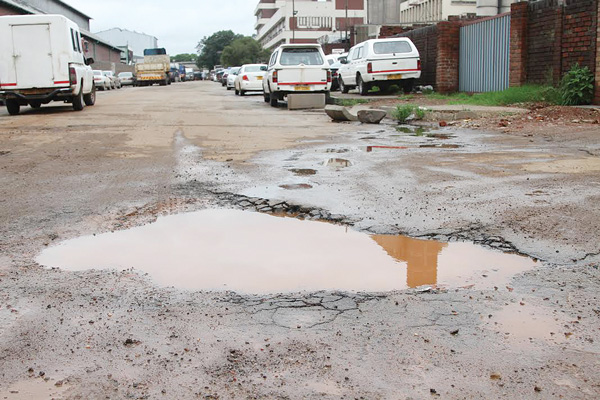
Change is a desirable phenomenon. We all aspire for new and better things. We love a new life and new beginnings.
Develop me: Tapiwa Gomo

The hunger for change is insatiable. Sadly, my generation has been robbed of the opportunity for progressive political change. We are stuck in our protracted hope and dreams that never come to pass.
The only change we have witnessed is the aging of our surroundings, our people, our elders and ourselves. Our roads, infrastructure and public utilities are aging or have already aged. We are living in an aged situation, where everything is calling for rejuvenation. The economy and politics are both aged and they need replacement.
Watching the Zimbabwe political drama unfold every day from a distance, just makes a mockery of our aging selves.
We are aging in barrenness. Aging is an undeniable and unstoppable phenomenon. No matter how much we love or hate change, we cannot change age backwards. Unfortunately, nature does not allow. And when humans deny others of social change, we can be certain and hopeful that humans cannot stop aging, another natural way change unveils itself to a faltering society of the oppressed. But to benefit from this natural phenomenon, one has to be a certain younger age. For my generation, our peak season has been consumed by gluttonous and impotent political power, that never wants to let go.
Just imagine that things started going bad in Zimbabwe in the late 1990s, and those years people were hopeful that either the government of the day would change its ways or a new political movement would force change and get our lives back on the rails. But nothing of that sort happened, as the undeclared intention of those in power was to stay put till age do us part.
Efforts to foster change are thwarted by abusive political power. It is that power, which when a baby cries of hunger, it takes away the baby’s voice rathan than feed the child. We have learnt to be creatively resilient and to joke about hardships. We are survivors. We navigate challenges.
- Chamisa under fire over US$120K donation
- Mavhunga puts DeMbare into Chibuku quarterfinals
- Pension funds bet on Cabora Bassa oilfields
- Councils defy govt fire tender directive
Keep Reading
But then one wonders how a people that is made of survivors — who have proven resilient in the face of the oppressor and yet allow the oppressor to thrive with such level of impunity and arrogance. Is it a case of high endurance and low determination? Or a case of the oppressor muzzling the determination, forcing people to retract into submission to save their dear life?
But our history has a different story to tell, only if we learn. In 1890, our ancestors were invaded, colonised and dispossessed of their being and belongings. Early resistance was thwarted by the power of the gun. There was physical submission, but spiritual determination remained unwavering, as they latter mounted an uprising after adapting to the colonialist’s ways of fighting. By the time our ancestors staged that uprising, the settler had earned comfort that allowed them to dictate terms and conceive of the uprising as illegal, destructive and uncalled for.
The lesson we draw from our ancestors, including those who oppress us today, is that, the desire for freedom must come from the oppressed themselves. As the oppressed, by fighting for the renewal of our destiny, the future of our children, we will be fighting for the rejuvenation of our aging social, political and economic environment. We, the oppressed, are the ones, who understand better our situation. We are the ones who smell the fetidity of our surroundings more than the oppressor. Consulting the oppressor to address the aging situation and its fetidity is delaying the transformation project. We are better equipped to understand our situation and the terrible significance of oppressive society than the oppressor.
Remember, for everything that the oppressor negotiates, they feel robbed of their power and opulence. Remember at independence, the only argument the settlers put across was that this is the only country they know and that farms, the wealth and the facilities were theirs, oblivious of the displacement and dispossession they caused to our ancestors.
Similarly, today’s oppressors have become stakeholders of everything our country has except your poverty. They see your poverty as a means to subjugations. They love you more when you are poor because you become easy to manipulate.
This is why, for everything you ask of the government, they feel they are being robbed. Everything is theirs and not yours anymore. Who can better understand the necessity of liberation better than the oppressed?
We will not gain liberation by chance, but through the praxis of our search for it, through our realisation of the necessity to fight for it. Or else we just wait for aging to define our end.
Tapiwa Gomo is a development consultant based in Pretoria, South Africa











